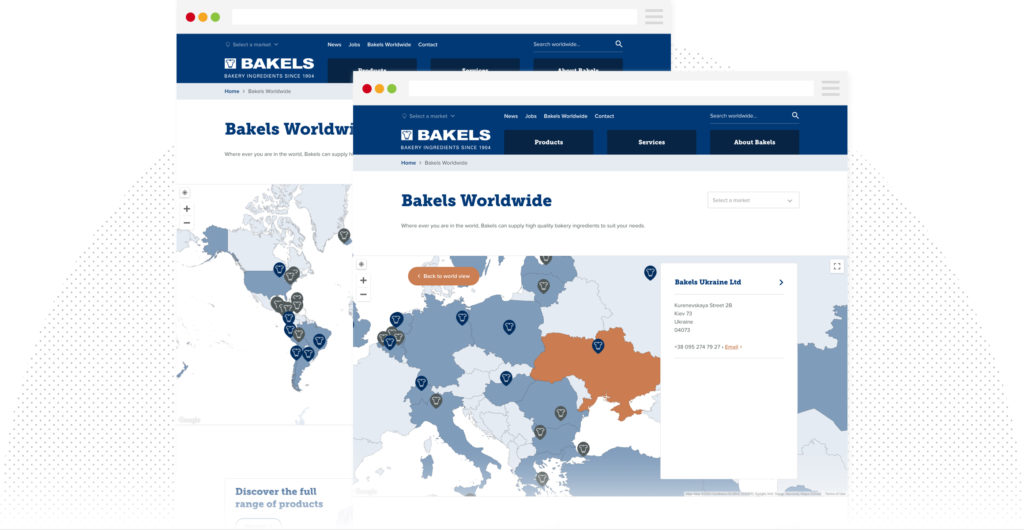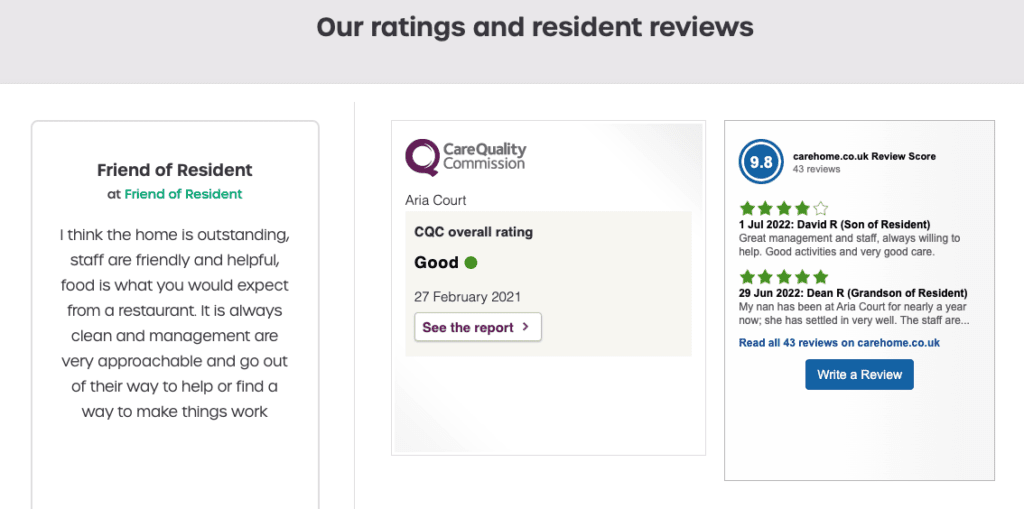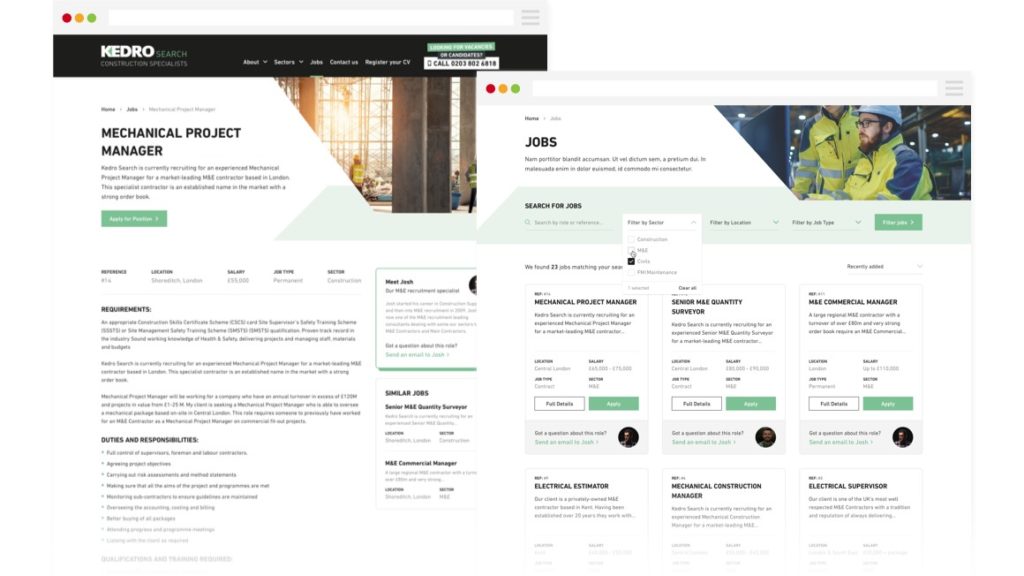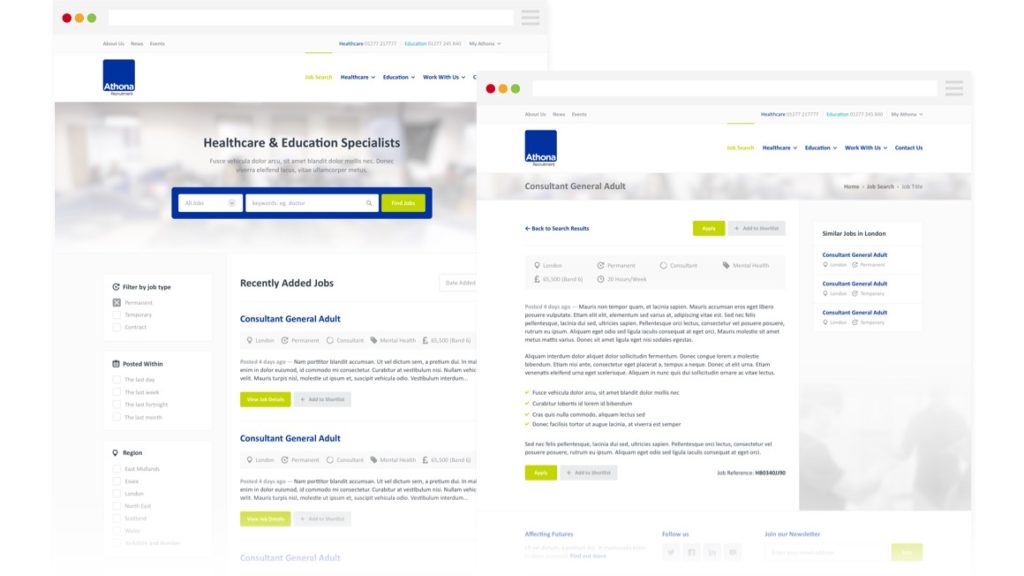Take Your WordPress Site To The Next Level With Custom API Integrations
Without APIs the web would be a very different place. They let websites and other systems connect, communicate and transfer data quickly.

Oops! We could not locate your form.
Without APIs the web would be a very different place. They let websites and other systems connect, communicate and transfer data quickly.

From payment portals, live feeds and sharing job postings, to maps, stock management and reviews, APIs can bring many benefits to your website. They can automate tasks that would be difficult or impossible to achieve manually, and bring together decoupled systems.
An API or Application Programming Interface is a software interface that allows two programs to communicate back and forth and share data. It’s basically a middle man and translator between two different systems, allowing them to interface, share and transmit data.
The concept of this kind of interface dates back to the early days of computing. Where subroutines would be stored on punched paper and they’d be stored in catalogues with information on what each one did. Essentially an API specification document.
This idea eventually translated through to computing that is more recognisable to us these days and was named an API. Evolving with technologies from networking right through to the internet as we know it today, APIs have been an important part of connecting us and creating modern and interactive websites.
In web development we deal with web APIs which allow communication between systems or programs via the internet. Usually enabling a website to communicate with another website or a 3rd party piece of software.
A web API will make a request to a web server for a specific data set and return it to the client wanting to access that data.
Imagine a user is on a travel website that has live updates. They want to see the latest train times and delays. That user will access a page that uses an API that links to live data from train companies, and that API will pull in the latest information to the page.
Invariably APIs are used to create a better user experience and more streamlined connectivity.
Some APIs are a shared standard, much like a lot of coding languages are. Some are public, whilst others are custom-built to link particular systems. These may come with a cost or be offered free depending on the purpose and the creator.
Developers have been integrating external APIs with WordPress for years. They are an integral part of many themes and plugins. After all, plugins are designed to remove the need for the development of certain bits of functionality or connections between a website and a tool or piece of software.
Where plugins don’t exist or aren’t reliable and well maintained, developers will look to custom-create API integrations or plugins to provide certain data for a website. If whatever they wish to connect to has an API, or at the very least a data source, a good developer will find a way!
Some Common Integration & Plugin Types:
You may have heard REST talked about in relation to web development. It stands for Representational State Transfer and is a kind of software architecture. An interface between decoupled programs or components via the internet.
A REST API or RESTful web API is a lightweight integration interface option, which is less restrictive than many other options out there, hence its popularity. REST APIs operate within the constraints of REST architecture but can be developed using a range of coding languages. They can work with numerous data formats, making them very versatile.
A REST API can interact with web services to request and transmit web resources to and from web servers, in a format that the receiving client (eg. the browser) can understand. Using a Javascript interface and HTTP, the API can make GET, POST, PUT or DELETE requests. This means it can request resources, but can also create new resources, update or add to existing ones, or delete them.
WordPress has its own REST API to aid in the creation of plugins and integrations, the WordPress REST API. It allows developers to access a WordPress database from outside of the installation to either request data from it, add to it, edit a resource, or delete something.
It’s been part of WordPress Core since 2016, and before that, it was available as a plugin. It’s also central to the Gutenberg editor which replaced the classic WYSIWYG editor in 2019.
It has helped facilitate the enormous growth WordPress has had as a fully realised flexible and scalable website platform, and even in the creation of headless WordPress websites.
Although there are many public and partner APIs out there, they may need a developer to integrate them with a website in order to get them to do as required. They are only the middleman, so a developer is often needed to connect a website with an API, and then have it transmit or output data as desired.
Development assistance is most likely needed if a quality plugin hasn’t already been developed to manage a specific integration or task.
That is where custom API integrations and bespoke plugin development come into play.
For example:
The Hubspot CRM already has a plugin available for WordPress. It can also be integrated in a very straightforward way for basic use. A user visiting through a web browser can input data into a form, and when they hit the submit button, that data will be sent via the Hubspot API into a corresponding Hubspot database stored on their web servers. This data is then accessible by the website owner, through their CRM dashboard.
But what if you use systems that don’t already have a plugin, or don’t integrate in such a straightforward way?
Imagine a business with physical stores and an e-commerce website. They will have a software system for stock management. It’s important that the website and the stock management system connect so that real time stock levels are shown on the website, and so that items that go out of stock are shown as out of stock on the website to avoid over-ordering. A connection would also allow the system to take into account online sales when calculating overall stock levels, and to identify popular lines.
Many stock management systems don’t have plugins available. But they do have a data feed, and usually an API.
As a development team with a great deal of experience creating complex 3rd party integrations with WordPress, we would be able to use this API (or a data feed for online systems) and integrate it with the clients WordPress/WooCommerce website. Allowing accurate realtime stock levels to be shown on the website’s product pages, and so that as soon as a product dropped to zero units, it’d be marked out of stock online. We’d also be able to set up custom alerts to notify customers when a product they’re viewing is low in stock.
This is where custom integrations really excel. Creating seamless integrations between a website and the key systems a business relies on. Automating time-consuming manual tasks, and letting businesses operate in a more connected and efficient way.
Imagine trying to keep your web store stock levels up to date manually when items are selling online and in a physical store!
We create standard integrations for our clients’ marketing tools and for functionality as part of every website we build. Including the likes of:
However, many of our clients need custom integrations and plugins, or to use public and partner APIs in specific ways. Let’s look at just a few examples of some we’ve created for our clients.
Using Google Maps API we created the Bakels Worldwide map page. It acts as an attractive and interactive index of their businesses and distributors across the globe. Including links to their local websites.

Care homes have to abide by various industry rules and regulations. To help them comply, we created custom integrations with the CQC and Carehome.co.uk, to display Athena’s ratings from both sources on their care home pages.

Recruitment of skilled carers is also vital, so we integrated their careers page with Indeed for easy vacancy management.
For Kedro, we created an integration with the market-leading recruitment software Bullhorn. It was important that it could integrate with their new site, to automate processes and reduce time-consuming manual tasks, including the management of their roles and application process.

A key requirement for Athona was integration with their recruitment technologies, which had been difficult with their old site.
We created custom integrations with Broadbean and Idibu to give them a seamless connection between their key systems.
This allows them to pull multiple job feeds for each of their specialist divisions, reduces staff time when pushing new positions to job boards, and means job roles only needed adding once, with the website doing the rest.

For many more examples, head over to our case study page.
If you need help with a custom integration or plugin, or if you’re looking to redesign your website and want to know if certain integrations are possible, talk to our team today.
Our developers have a great deal of experience in creating bespoke integrations with 3rd party tools for WordPress & WooCommerce, and the ability to support existing integrations and plugins.


WordPress Core version 6.5 was released on April 2nd. So let's take a quick look at some of the main changes it brings with it.
 Richard Ramirez
Richard Ramirez

WordPress Core version 6.4 is released today. So let's take a quick look at some of the main changes it brings with it.
 Richard Ramirez
Richard Ramirez

If you're looking for the right contact form solution for your WordPress or WooCommerce website, there are certainly no shortage of options on the market.
 Richard Ramirez
Richard Ramirez